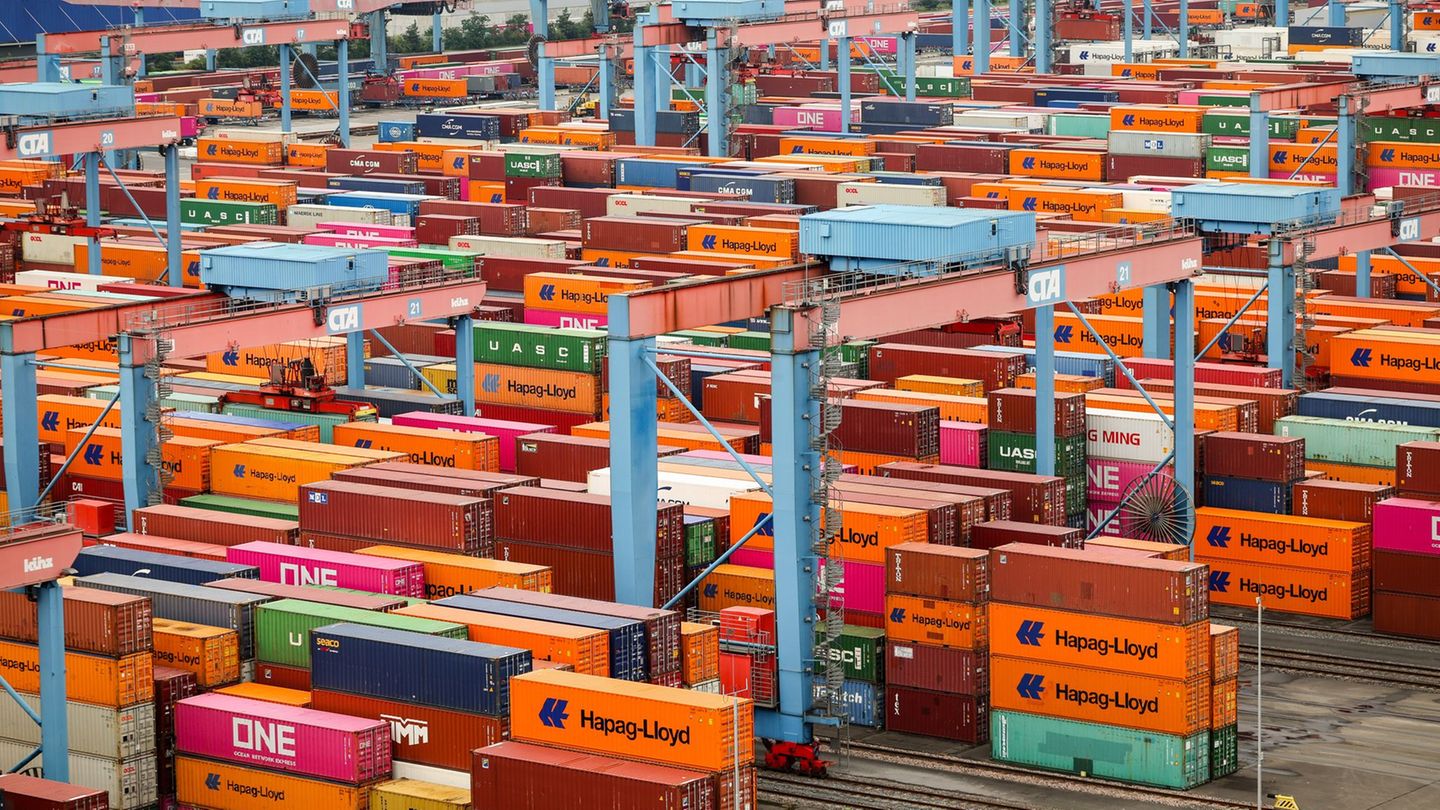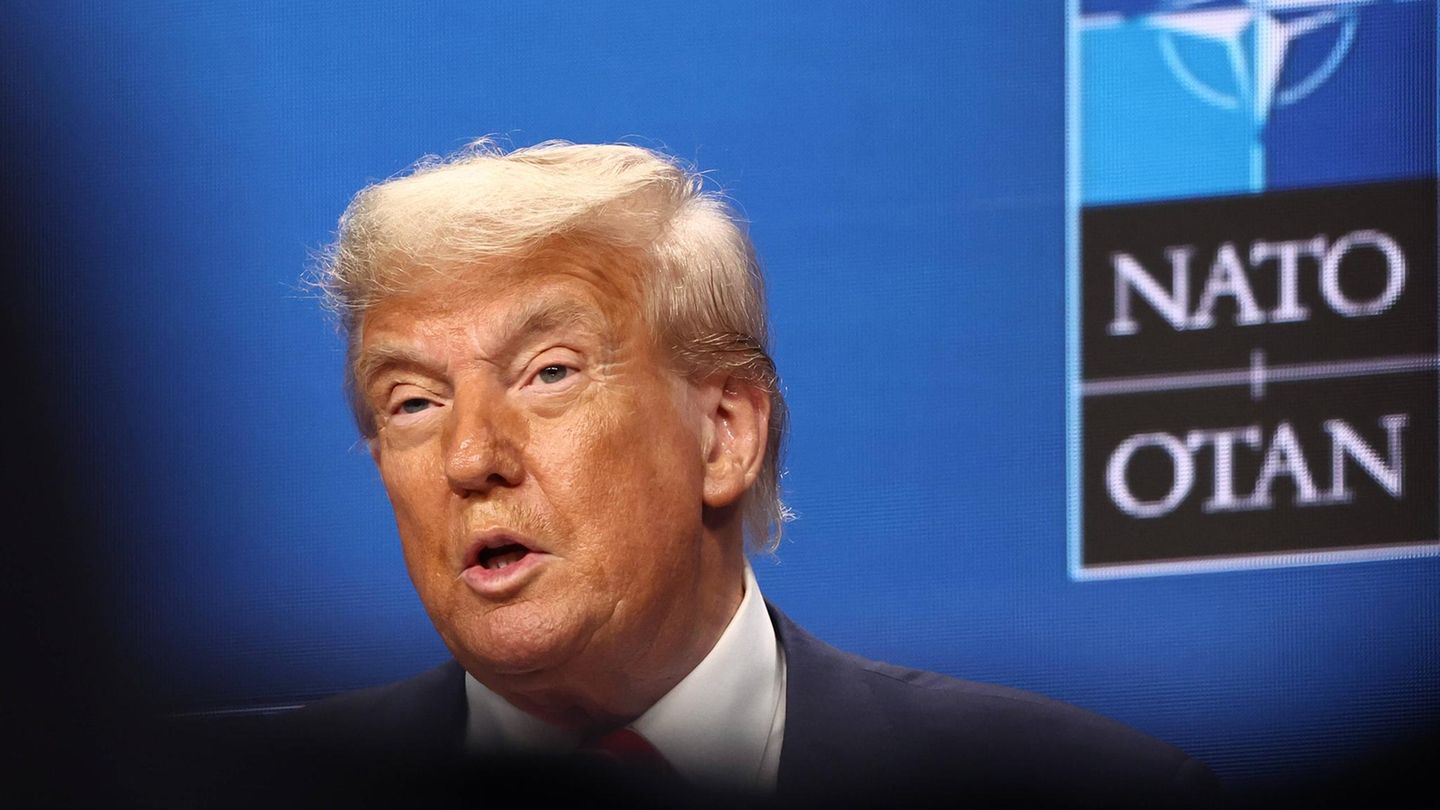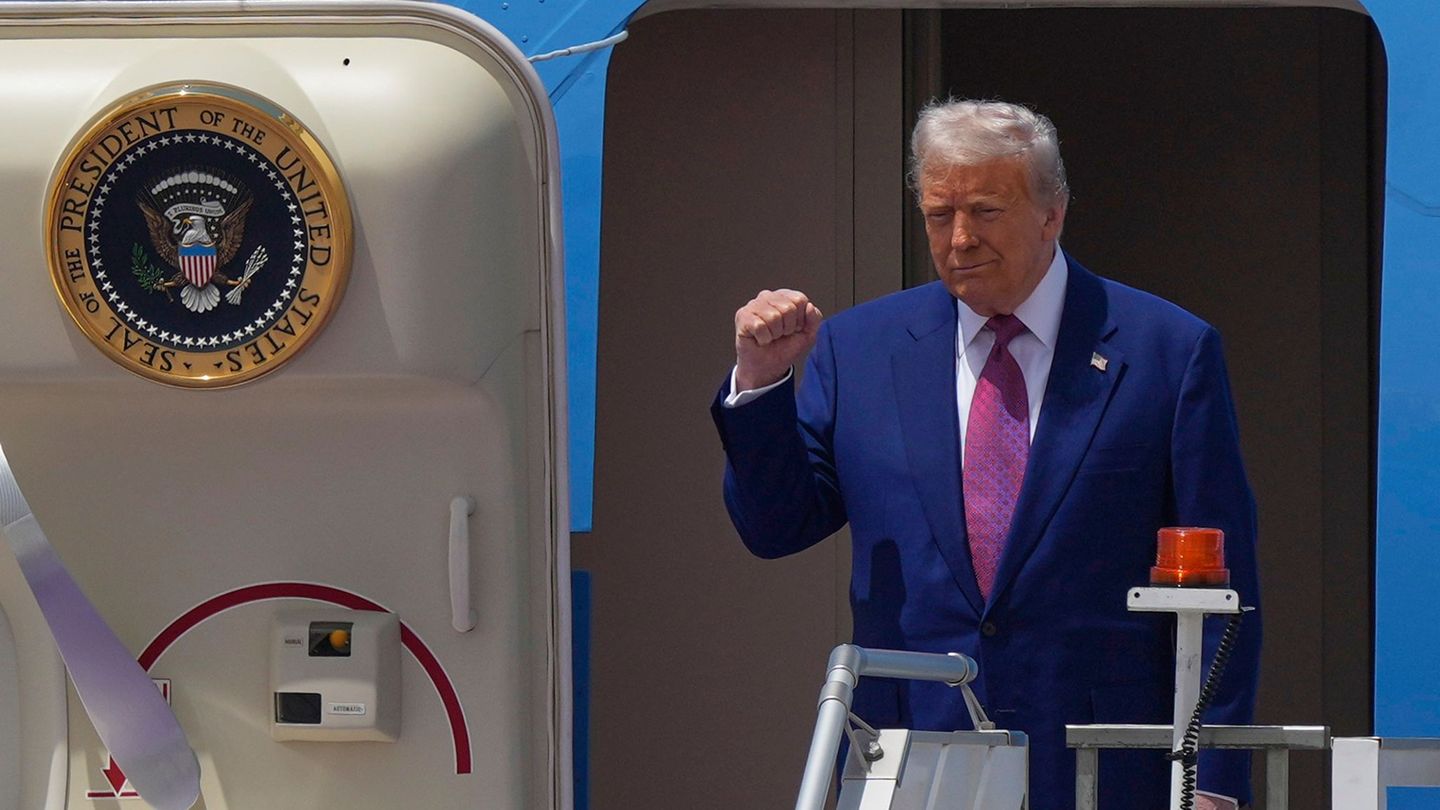Foreign trade
Study: EU business can compensate for excruciating US exports
Copy the current link
Add to the memorial list
Trump’s customs policy puts the German export industry under pressure. But experts say that better business in Europe could make that more than make up for. This would be necessary for this.
Commercial wars and increasing protectionism in the United States will again focus more on the German export industry, according to experts. A shrinking US business could even compensate for greater growth within Europe, according to the Deloitte auditing company in a new study on development until 2035.
German exports to the United States are likely to have an average of 3.2 percent per year shrinked by 2035, the Deloitte experts said that the trade barriers announced until mid-March. Result: The US business would shrink from the current 84 billion to 59 billion euros within ten years. Last autumn – without the tariffs that have now been announced by US President Donald Trump or introduced – to be growed by 1.8 percent per year in the US business by 2035.
European business dominates
On the other hand, they have corrected their forecasts for Europe: exports to the ten most important buyers’ countries should therefore increase an average of 2.5 percent per year instead of the 1.8 percent expected in autumn. This could even compensate for the breaking US business – at least nominal, without taking inflation into account. The volume of the ten largest buyers in Europe with a total of 357 billion euros is more than four times as high as that in the United States, the Deloitte experts are expecting. In 2035, it would be almost eight times as much with 467 billion euros.
“The EU internal market is a sleeping giant for German industry,” says Oliver Bendig, partner and head of industrial advice from Deloitte. However, this potential can only be fully exploited if the EU still reduces existing barriers to trade. Then, according to the study, significantly stronger growth would be possible. “In view of the increasingly protectionist tendencies in world trade, industry in Germany can use a growth boost from Brussels well.”
Handlars even without customs
Even 30 years after the introduction of the European internal market – despite duty -free – there are still considerable burdens in the business with the EU to the EU: deviating product regulations and certifications, different provisions on packaging and their disposal, growing reporting obligations and complex tax specifications. “The bureaucratic strain on German companies that act in Europe has been very high and has increased in recent years,” says Bendig.
In total, this corresponds to a surcharge of up to 44 percent for industrial goods, according to Deloitte, referring to calculations by the International Monetary Fund (IMF). If half of these loads alone, the study would lead to additional growth of one percent a year in business with most EU countries by 2035. If the obstacles were completely eliminated, the growth rate would often even be doubled – with at least one further percent plus per year in most EU countries.
Mechanical engineering and the electrical industry in particular would benefit, according to the study. Because here the loads have been particularly high. The effect of cars and chemical products is significantly low. Here, the burdens from trade barriers within Europe are currently the lowest.
dpa
Source: Stern




